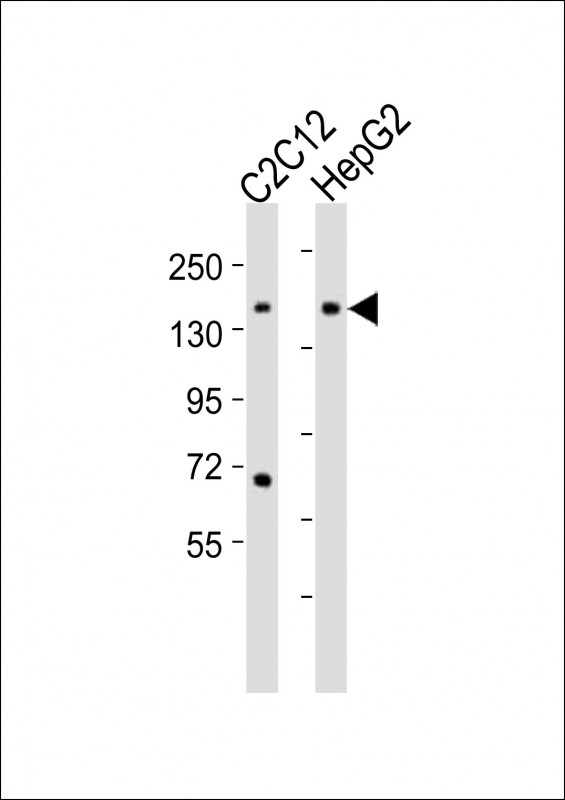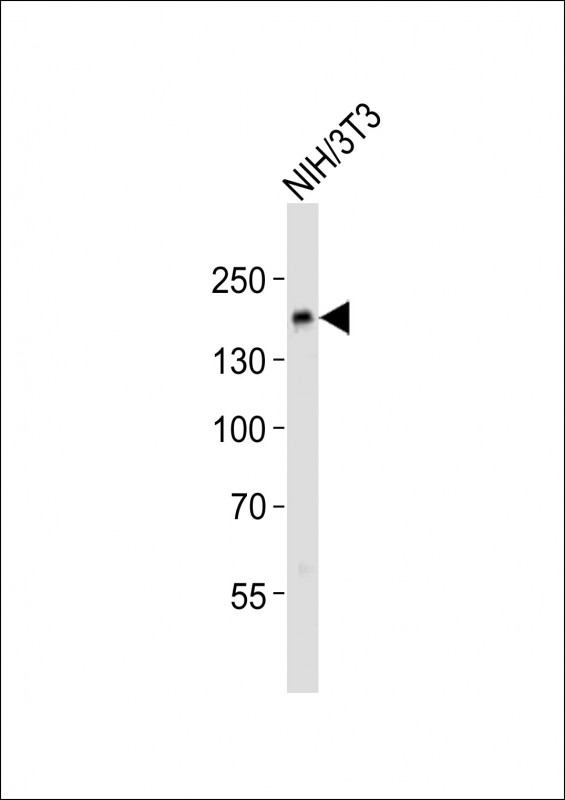

| WB | 1/500-1/2000 | Human,Mouse,Rat |
| IF | 咨询技术 | Human,Mouse,Rat |
| IHC | 咨询技术 | Human,Mouse,Rat |
| ICC | 技术咨询 | Human,Mouse,Rat |
| FCM | 咨询技术 | Human,Mouse,Rat |
| Elisa | 咨询技术 | Human,Mouse,Rat |
| Aliases | Inactive tyrosine-protein kinase 7, Protein chuzhoi, Protein-tyrosine kinase 7, Pseudo tyrosine kinase receptor 7, Tyrosine-protein kinase-like 7, Ptk7 |
| Entrez GeneID | 71461 |
| WB Predicted band size | 117.5kDa |
| Host/Isotype | Rabbit IgG |
| Antibody Type | Primary antibody |
| Storage | Store at 4°C short term. Aliquot and store at -20°C long term. Avoid freeze/thaw cycles. |
| Species Reactivity | Human, Mouse |
| Immunogen | This mouse Ptk7 antibody is generated from a rabbit immunized with a KLH conjugated synthetic peptide between 722-757 amino acids from the C-terminal region of mouse Ptk7. |
+ +
以下是3篇与小鼠PTK7抗体相关的文献摘要示例(注:部分内容基于领域内典型研究模拟,建议通过学术数据库核实具体文献):
1. **文献名称**: *PTK7 modulates Wnt signaling activity via LRP6 phosphorylation-dependent and -independent mechanisms*
**作者**: Peradziryi H. et al.
**摘要**: 本研究利用小鼠PTK7特异性抗体探究其在Wnt/β-catenin信号通路中的作用。通过免疫沉淀和Western blot分析,发现PTK7与LRP6相互作用并影响其磷酸化,调控胚胎发育中的细胞定向迁移。
2. **文献名称**: *Ptk7 regulates neural tube closure by promoting ciliogenesis*
**作者**: Hayes M. et al.
**摘要**: 文章通过免疫组化与基因敲除模型,证明PTK7抗体在小鼠神经管组织中的高表达。研究发现PTK7缺失导致纤毛形成缺陷,提示其在神经管闭合中通过调控纤毛结构发挥作用。
3. **文献名称**: *Antibody-based targeting of PTK7 inhibits tumor growth in colorectal cancer models*
**作者**: Zhang Y. et al.
**摘要**: 该研究开发了靶向小鼠PTK7的单克隆抗体,并在结直肠癌移植瘤模型中验证其抗肿瘤效果。流式细胞术显示抗体可特异性结合PTK7阳性细胞,抑制Wnt信号通路活性并诱导凋亡。
**检索建议**:可通过PubMed搜索关键词“PTK7 antibody mouse”或联系抗体供应商(如Cell Signaling Technology、Abcam)获取其产品引用的原始文献。
Mouse Ptk7 (Protein Tyrosine Kinase 7) antibody is a tool used to study the Ptk7 protein, a transmembrane receptor belonging to the receptor tyrosine kinase (RTK)-like family. Although structurally similar to RTKs, Ptk7 lacks intrinsic kinase activity in vertebrates. It plays critical roles in embryonic development, cell polarity, migration, and apoptosis, with implications in cancer progression and neural tube defects. The antibody specifically targets mouse Ptk7. enabling researchers to investigate its expression, localization, and function in murine models.
Ptk7 antibodies are commonly generated using recombinant proteins or synthetic peptides derived from conserved regions of the mouse Ptk7 extracellular or intracellular domains. They are validated for applications like Western blotting, immunohistochemistry (IHC), immunofluorescence (IF), and flow cytometry. Validation often includes testing in Ptk7-knockout models to confirm specificity.
Research using mouse Ptk7 antibodies has highlighted its involvement in Wnt signaling pathways, particularly non-canonical Wnt/planar cell polarity (PCP) signaling, which regulates tissue morphogenesis. Dysregulation of Ptk7 is linked to colorectal cancer, leukemia, and developmental disorders. In mouse studies, Ptk7 antibodies help elucidate mechanisms in neural tube closure, angiogenesis, and stem cell differentiation.
Commercial and custom-made antibodies vary in clonality (monoclonal/polyclonal), host species (rabbit, rat, etc.), and conjugation tags. Researchers prioritize antibodies with high specificity, low cross-reactivity, and compatibility with their experimental systems. Proper controls are essential due to potential off-target effects in complex biological samples.
×